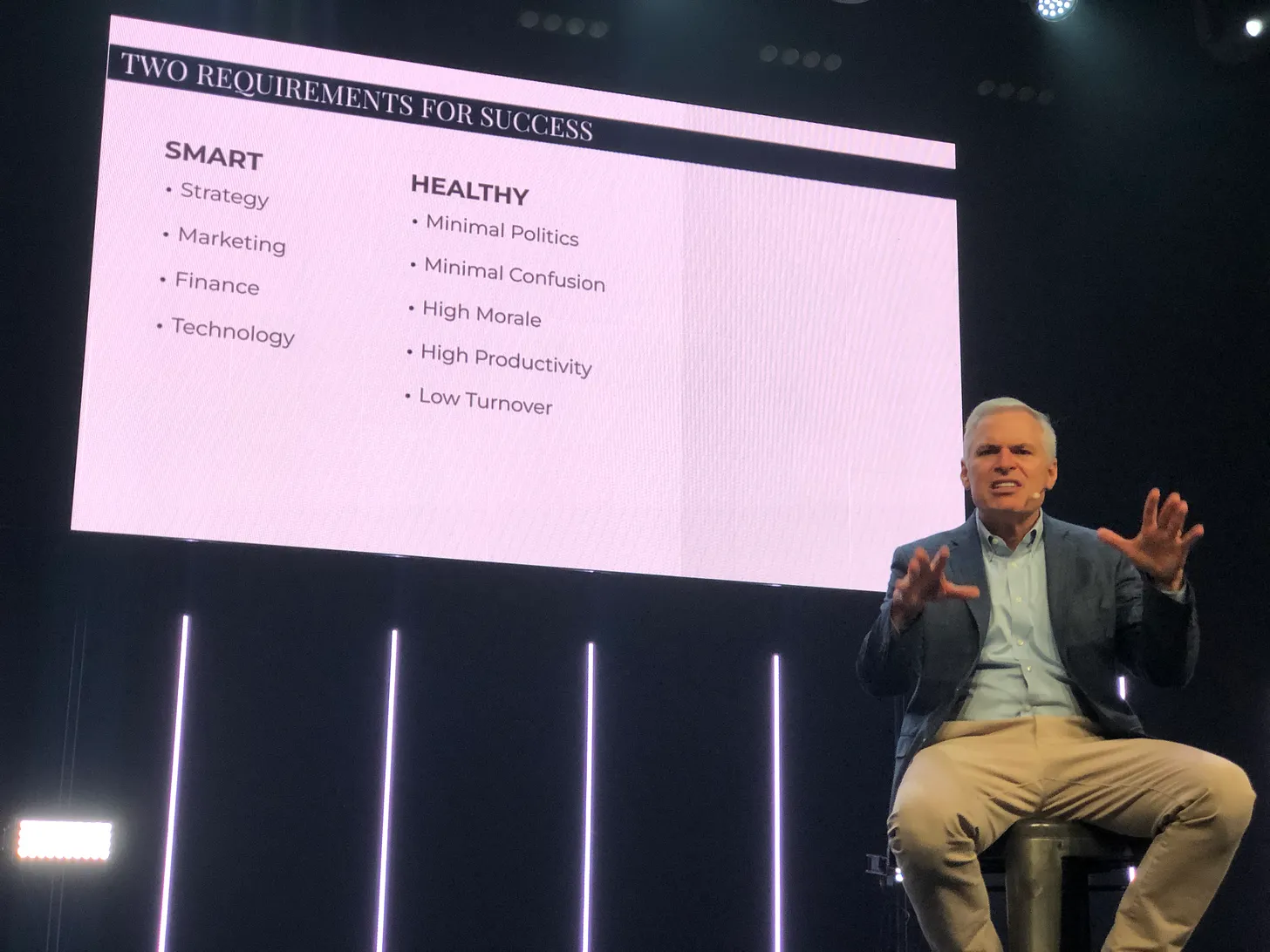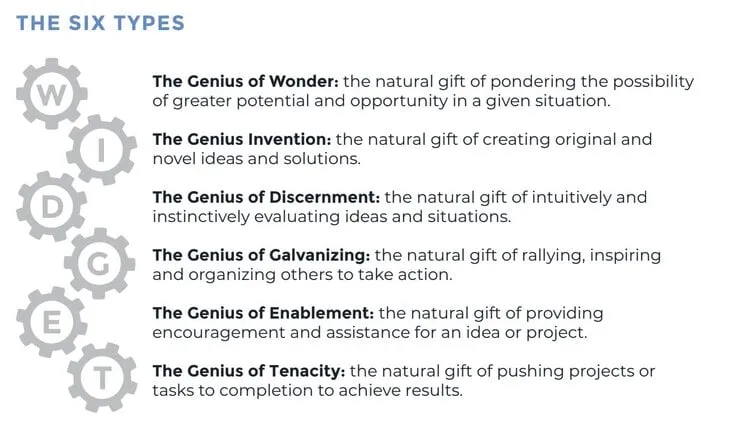
50+ Highlights From Leaders at DCX Conference
You need to read this. It’s my pleasure to share a collection of knowledge nuggets and pearls of wisdom from DXC Conference this week.
Ask a better question, get a better connection.
When we seek to better connect with our team or even those we first meet, we’d be wise to consider our first five questions to open the discussion.

Vanessa Van Edwards unpacked the three levels of knowing from Dan McAdams and it was an eye opener. Here’s what you need to know.
-
Level one is General Traits, things like their general status, where they grew up, and their occupation.
-
Level two is Personal Concerns, things like goals, motivations, and their personality.
-
Level three is Self-Narrative, things at their core identity and deeply personal, things that reveal who we are and how we became who we are.
Bad. Level 1 questions are the worst form of questions, they hinder conversations, and we apply our “social scripts” to answer them and often turn into short or one-word answers. Stay away from these questions:
-
How are you?
-
What do you do?
-
Where did you go to school?
Instead, you should ask questions like:
-
What was the highlight of your day?
-
What personal project are you working on?
Level 2 questions brings you into their real life and concerns, the things that keep them up at night or bring energy and excitement.
Ask questions like:
-
What’s a big personal goal you are working on?
-
What are you learning right now?
-
What’s being weighing on you?
-
When you think about yourself, what movie or book character is most like who you are?
Level 3 question are the rich and fertile ground of who we are. Our identity. These questions bring up things we may never or only rarely discuss. Truly connect with questions like:
-
How do you feel most misunderstood?
-
What’s something most people don’t know about you?
-
What forces shaped your personality or made you who you are?
-
Who’s your hero or role model? Why?
-
What’s the story behind your proudest moment of your life?
Your Working Genius
Patrick Lencioni is a best-selling author and business consultant. Some of my favorite books from Pat include The Ideal Team Player, The 5 Dysfunctions of a Team, The Advantage, and his latest book The 6 Types of Working Genius. 
In full disclosure, I am a super fan and have read all 12 of his books and operationalized them over the last decade into my leadership development and consulting work. A great deal of my success running great workshops that create breakthrough and build high performing teams are a direct result of Pat’s books and their impact on me as a leader.
Seeing him in person and shaking hands with him was great.
The value of the Working Genius is simple, but profoundly useful. I require this in all my teams.

"We are not meant to feel unnecessary guilt or judgement because we don’t understand ourselves or others?
He went on to say that he found he was grumpy one day, excited the next day, and it was a roller coaster day to day that affected him and his team. They wanted to understand why, and the output revealed these six geniuses and that no single person covered all six and anytime you work in zones that are your competencies you can get burnt out and if you were doing your frustrations, you could find yourself wanting to quit.
These are the 6 geniuses:
The answer is to have a team that covers all six of these zones or to educate the team on which of these six are missing in the team dynamic.
Because we want to build high performing teams that get stuff done, we need to have clarity, focus on results, and have a solid foundation of trust. Trust comes from vulnerability. To be vulnerable and create a culture of vulnerability you need to know yourself and your team at a deeper level. Understanding how you were made, what you thrive at and get joy from, and understanding what you are not good at are all essential to being honest and vulnerable in the team so you can all work together at a higher level.
Vulnerability based trust means you can talk openly about the challenges, have healthy debate, and be comfortable asking for help, apologize or admit being wrong or making a mistake, and saying you do not know.
One huge leadership comment he made, that I have seen first hand, was this.
“Leaders have to go first with vulnerability because it can feel risky. But the thing is, if your team is being vulnerable but just one person on the team is holding back, it will bring the whole team down.”
Overthinking Kills
Jon Acuff brought some very interesting points forward:
-
Many start, few finish.
-
Goals are the fastest path of where you are today and where you want to be tomorrow.
-
Finishers have the right mindset, they do not overthink.
-
Overthinking slows decisions, complicates things, and holds back progress.
-
Overthinking is fear in a new form, stealing our time and our creativity.
-
Overthinking is when what you think gets in the way of what you want.
-
They asked 10,000 people if they struggled with overthinking. 99.5% said yes.
-
Great thoughts lead to great actions. Great action leads to great results.
-
Change is necessary.
-
“You get to keep the limitations you fight for”. (Self talk or defending your limits).
-
Ask yourself if the self-talk you are saying is true? Is it helpful? Is it kind? If not, stop.
-
Great teams are able to ask questions, suggest new ideas, admit when wrong.
-
“Leaders who can’t be questioned do questionable things”.
-
Instead of saying “that will never work”, say this “I wonder how that could work.”
-
Curiosity beats criticism.
-
When you are in growth mode, innovation mode, or going through change, you need to embrace curiosity and not encourage criticism.
-
Thoughts are actionable. What are the thoughts you are thinking?
-
Everything for leaders boils down to two things: People or Projects. You have to excel at both.
-
Empathy is understanding what someone needs and acting on it.
-
You need to care about what the people you care about, care about.
-
Crisis magnifies kindness.
-
The little things have tremendous weight.
-
It’s better to meet a need rather than create a need.
-
When you take the time to ask someone what they need, they become visible and valuable.
-
Think to yourself that you are someone’s solution. Your are someone’s Lego brick.
The Real Tim Tebow
Tim showed up in a big way. I have not seen Tim give a keynote so didn’t know what to expect as a result I was blown away by his energy and message, part motivational, part Christian encouragement, part leadership – all real.

His stories were personal and heart felt.
Here are some of my highlights:
-
Build a team around you. Not just at work, but in life. Who is on your team? Iron sharpens Iron.
-
We have no idea what a person has gone through, do not judge them by actions and assume you know them when you don’t.
-
When you are building a team, you are inviting them to see what you can’t see and for you to see what they can’t see. The team helps each other, not just you. Be open to correction, to wisdom, to learning from the team.
-
Be a part of a team that fights with and for each other.
-
When you build a team, you have to be willing to suffer together. You have to have the compassion to suffer with others. The trials and challenges are real, they are either here now or they are coming soon, but a great team will do it together, with compassion, and willingness to suffer to move through it together.
-
We are built for community and relationships. They will be our source of encouragement. This is where we speak life into others, and others speak life into us.
-
When you are tired, when you pull up short, when you pull back early, this leads to a loss of trust in the team. They see that when things are hard or when it’s not what you like, you’ll give up or only halfway help. You might be the favorite person, funny, or genuine on the team, but if you do this, the team will not trust you regardless of liking you. If you want to be trusted, suffer with the team and be compassionate and fully engaged to the best of your ability.
-
Help me in my desperate time of need. Let me help you in your desperate time of need. Don’t give up.
-
To build a team is to choose the best interest of the other and act on their behalf – agape love.
-
Learn to run, choose to move forward in directed purpose. Whatever you do, do with all your might.
-
When you are called, you have a God given urgent and divine responsibility to accept responsibility of a task. This purpose should keep you going, and running, not coasting, or waiting until you are ready. Fight for your calling.
-
Run to your calling, don’t show up to heaven well rested. Show up exhausted from running after your calling in service of others.
When we share, we grow and so do the people we share with.
Let me know the one or two things that were useful to you here.
#GSD
I appreciate you,
Justin
Stay connected with news and updates!
Join our mailing list to receive the latest news and updates from our team.
Don't worry, your information will not be shared.
We hate SPAM. We will never sell your information, for any reason.


